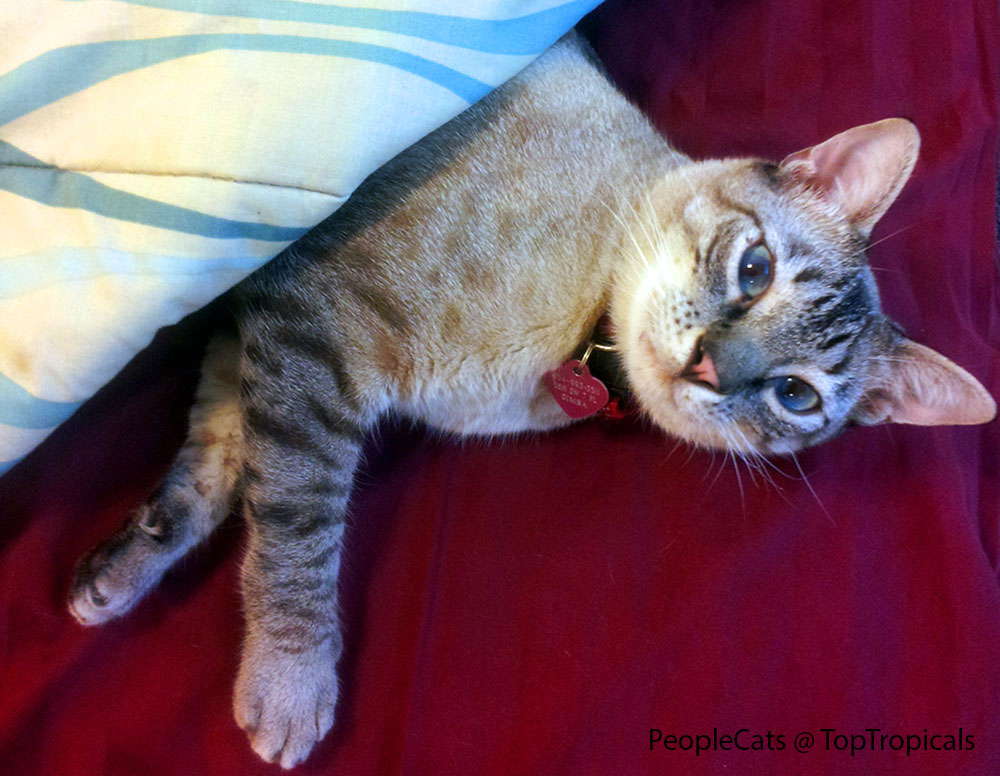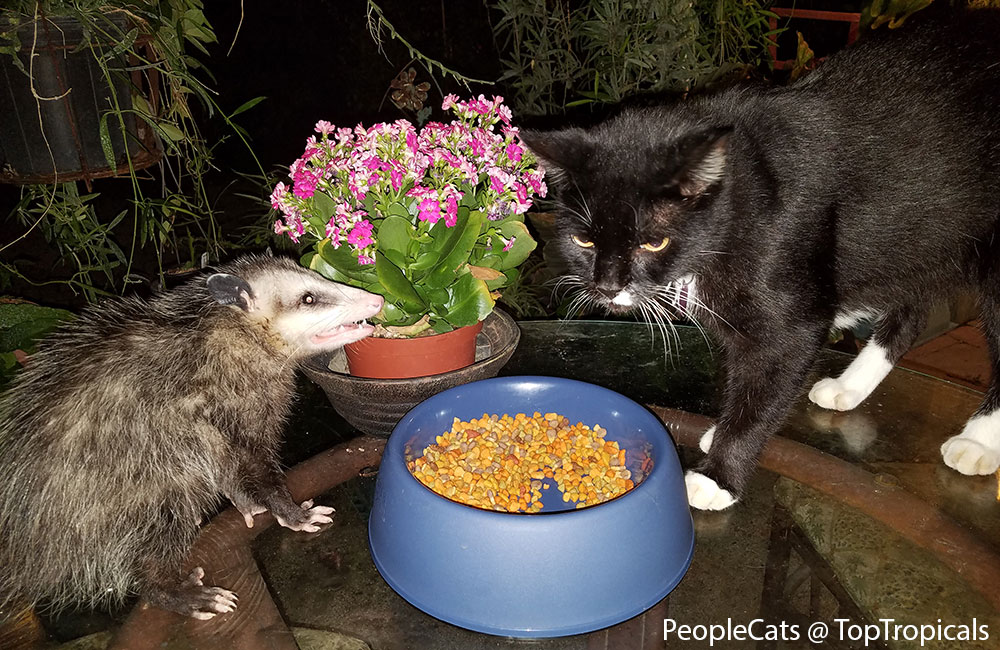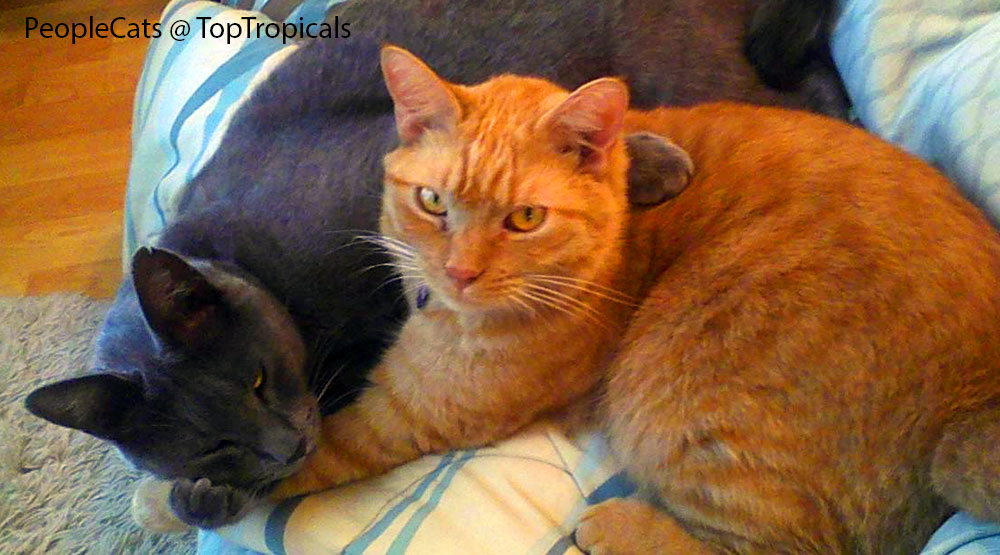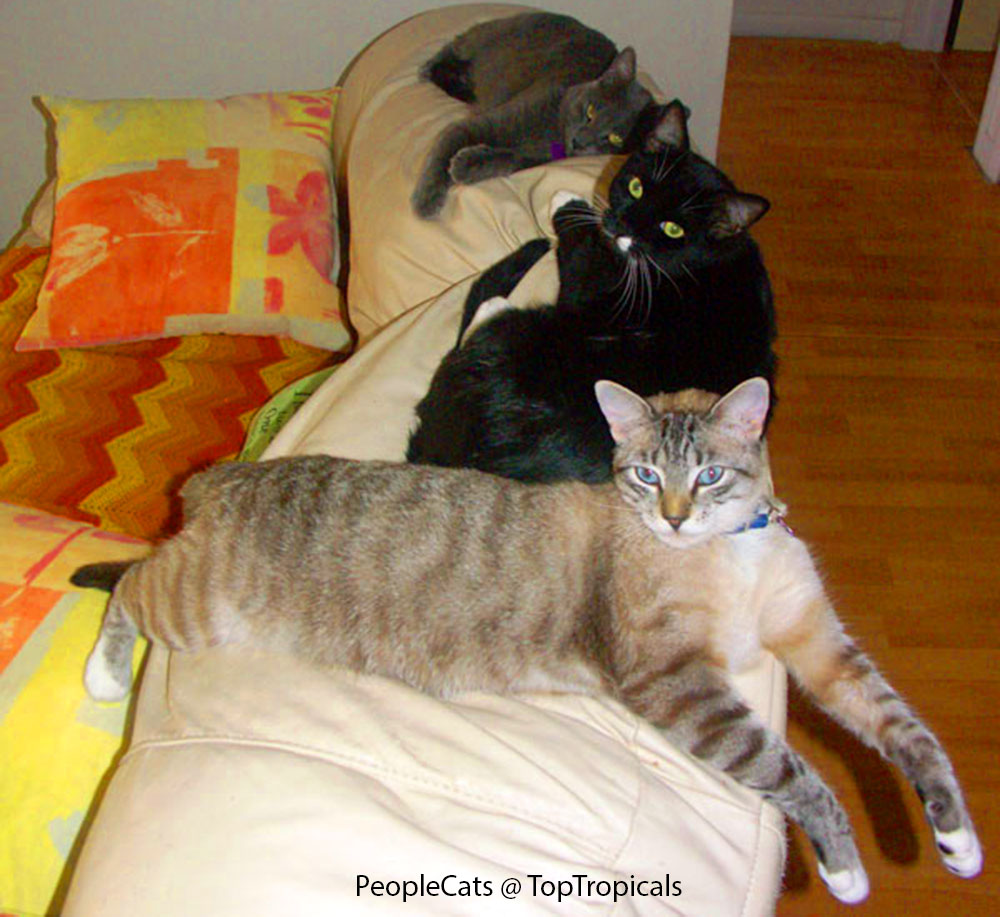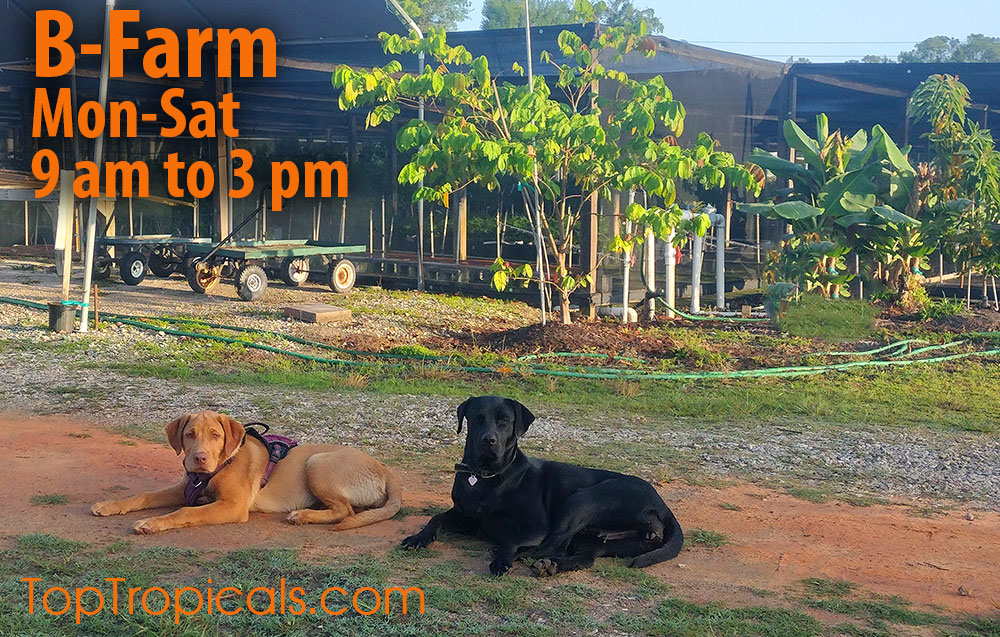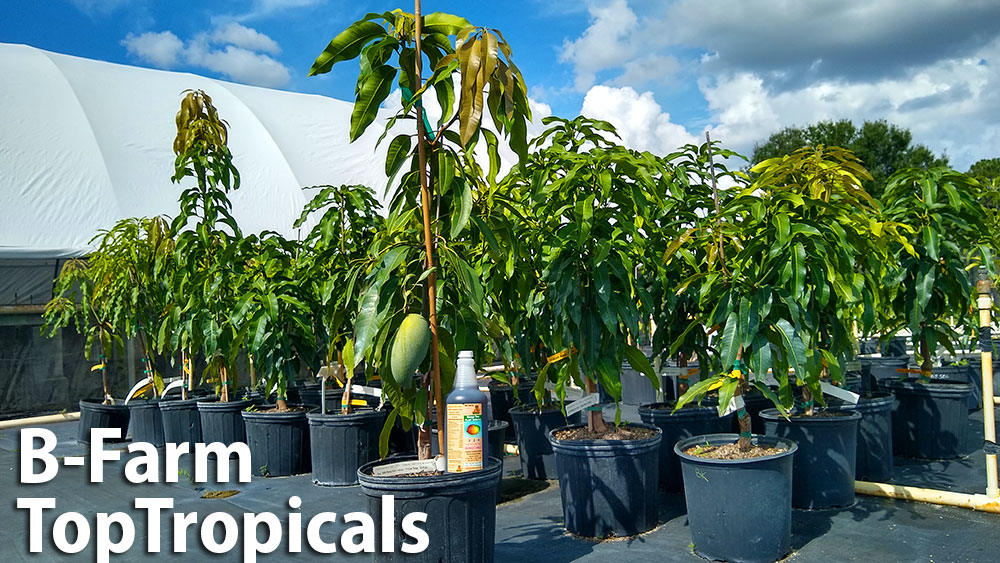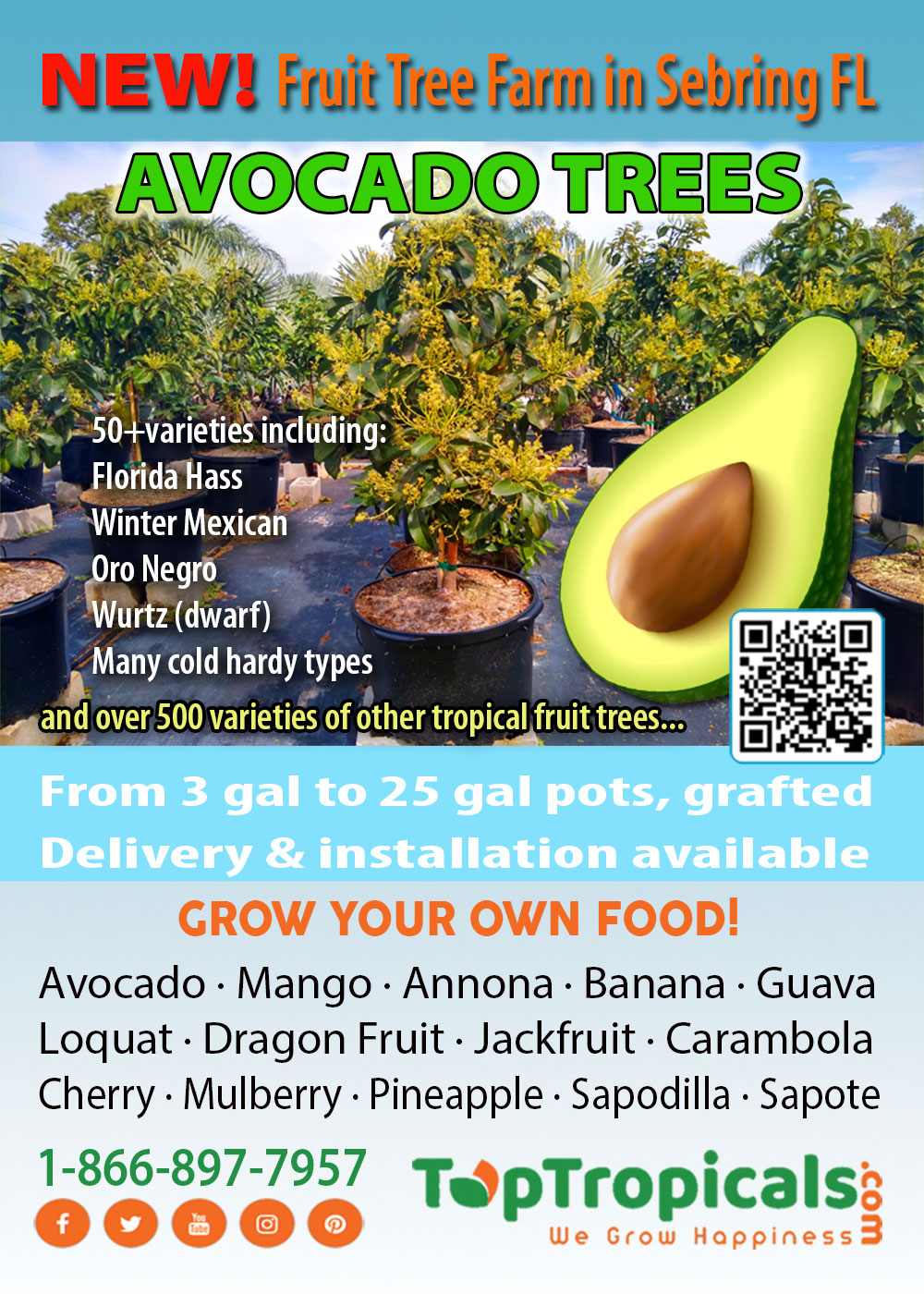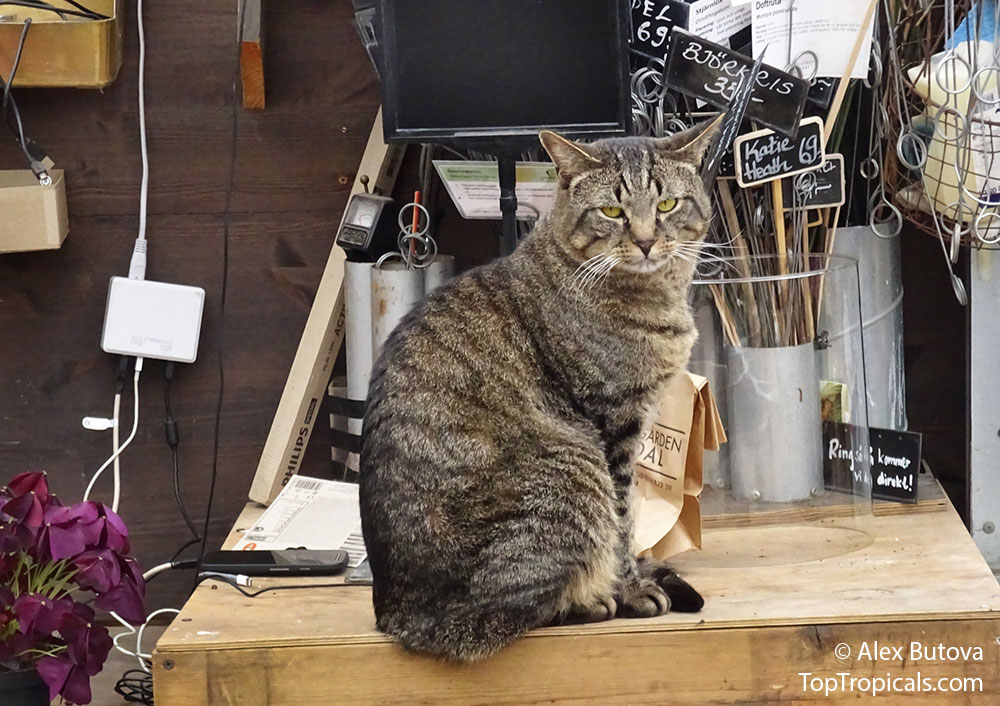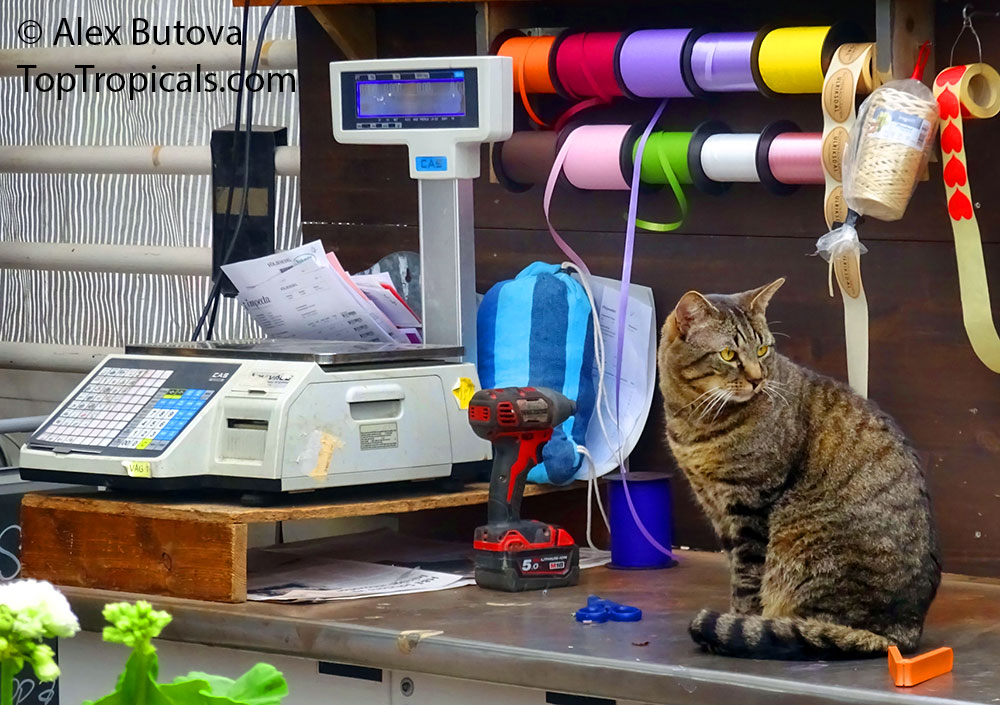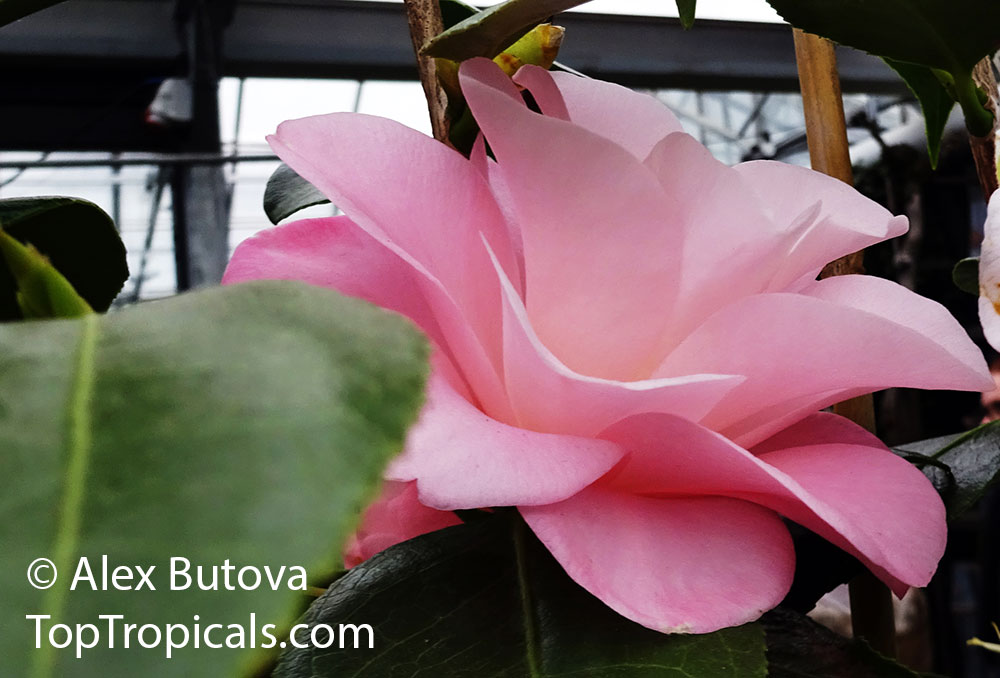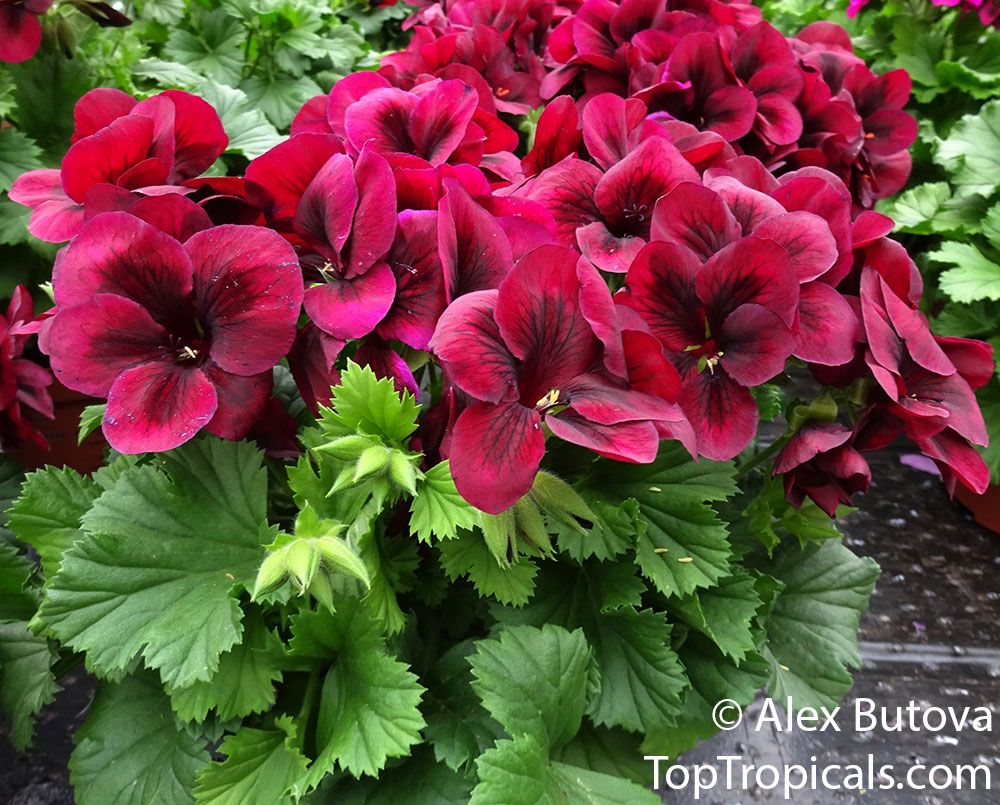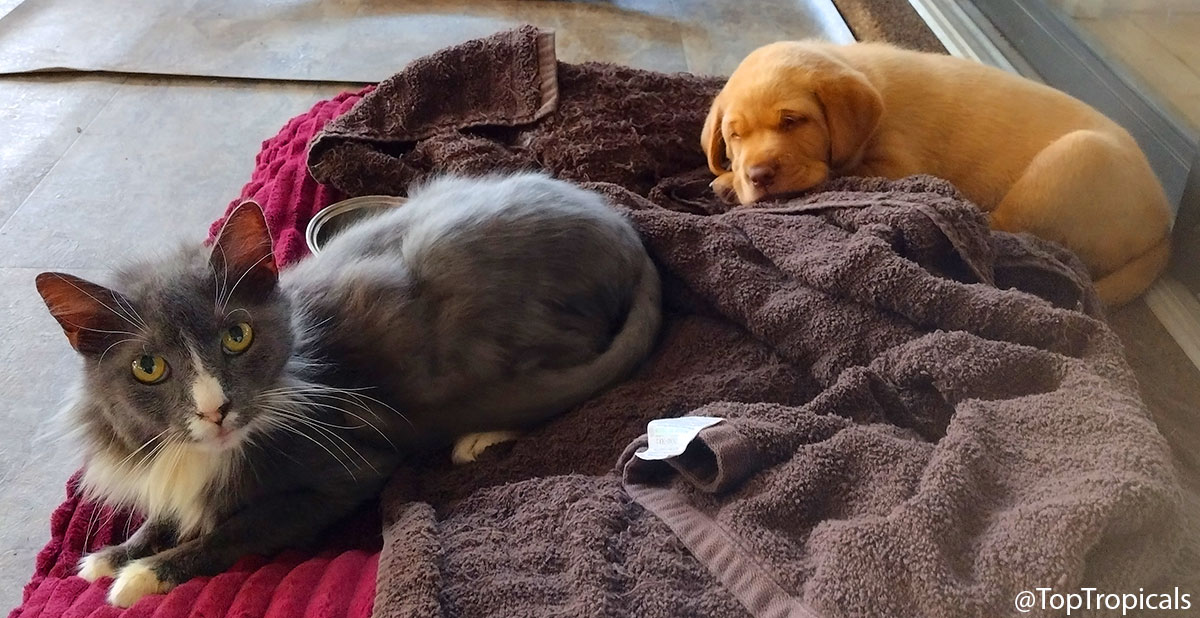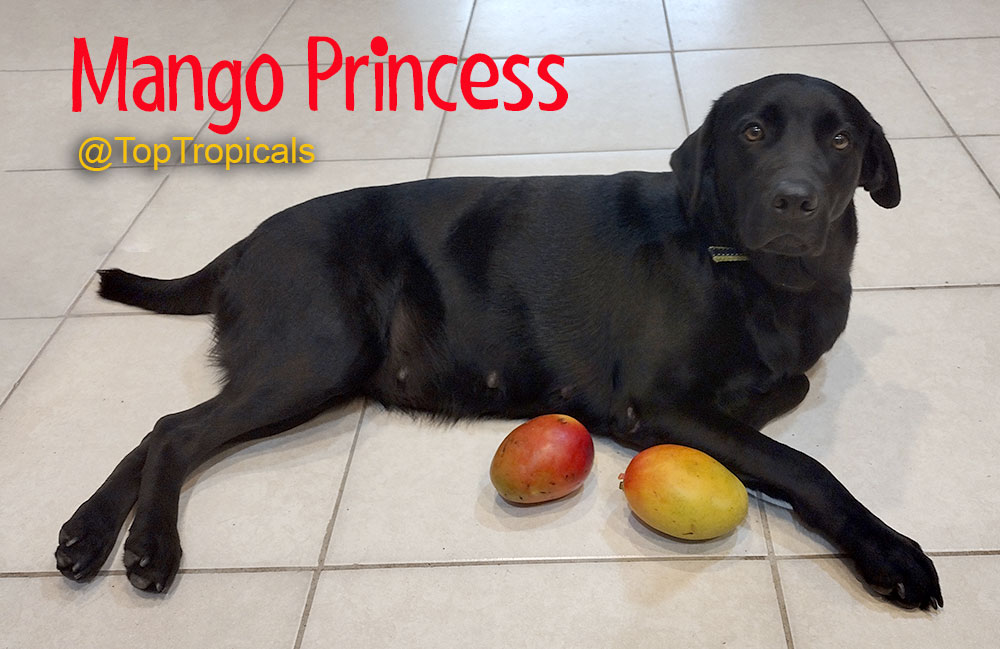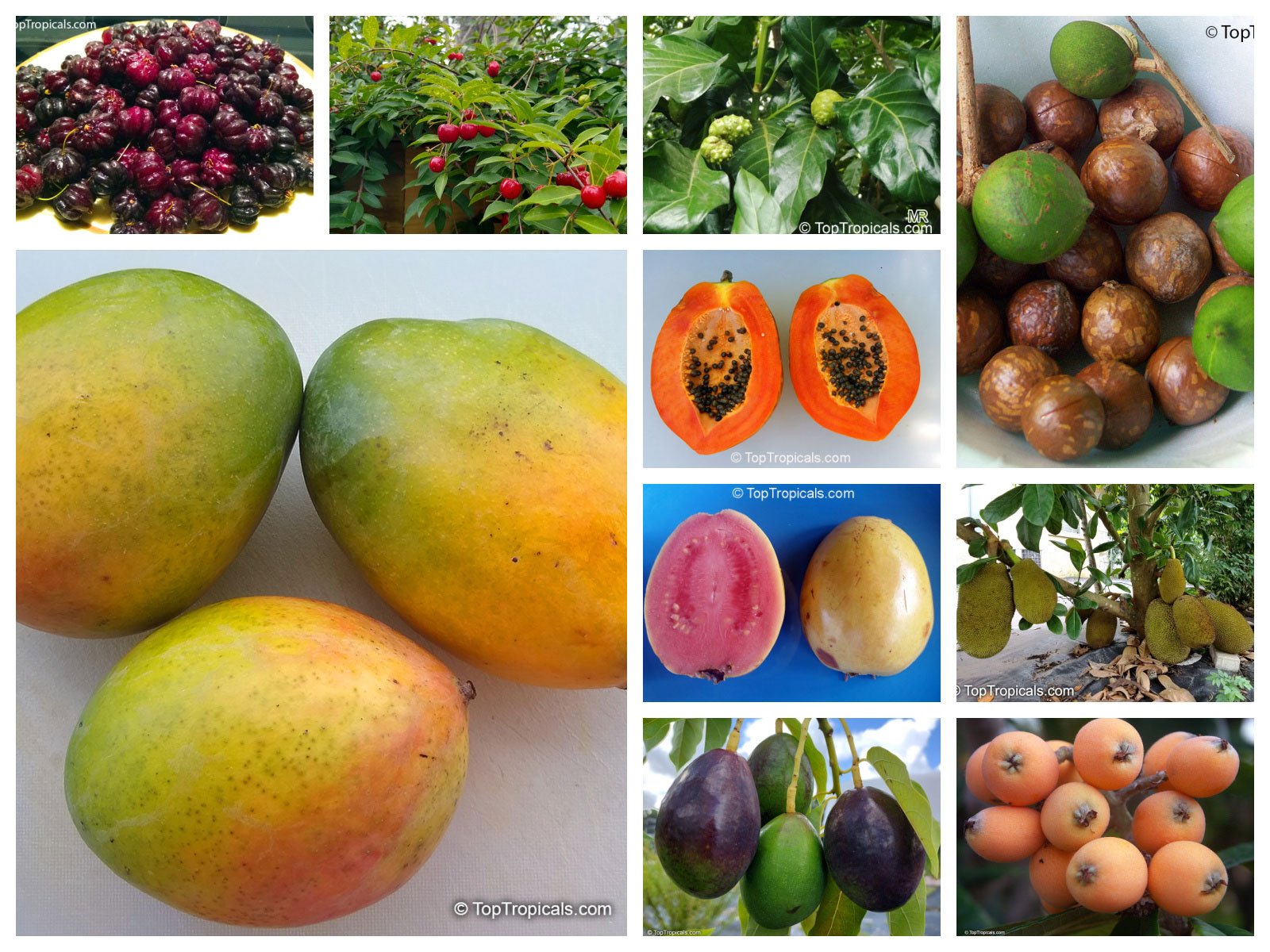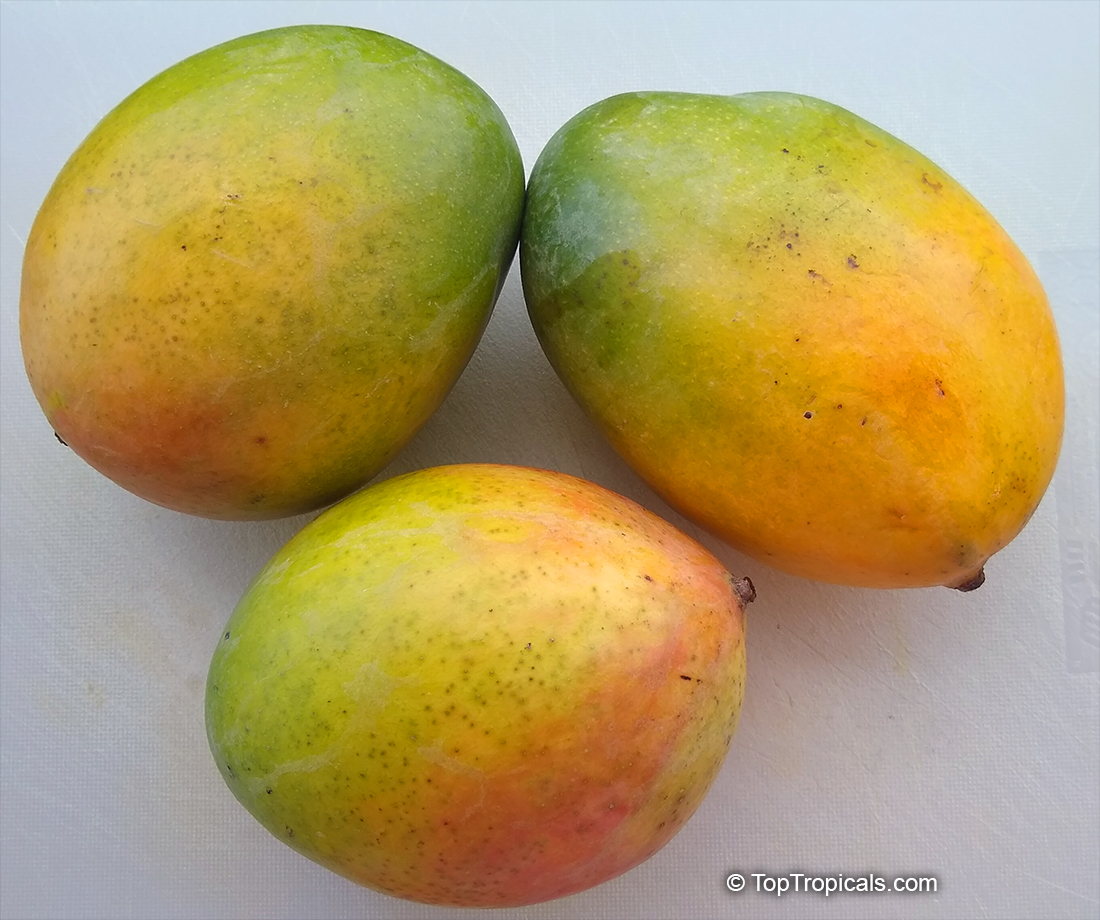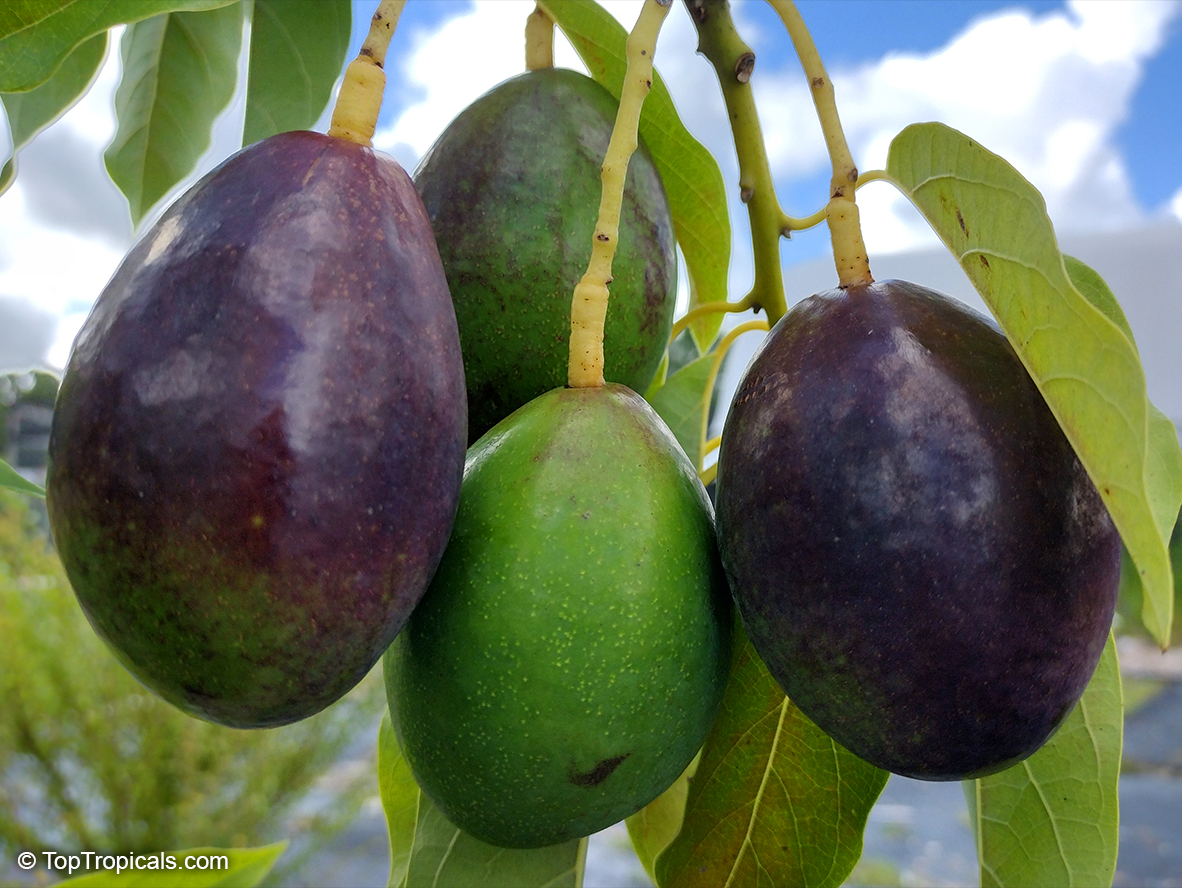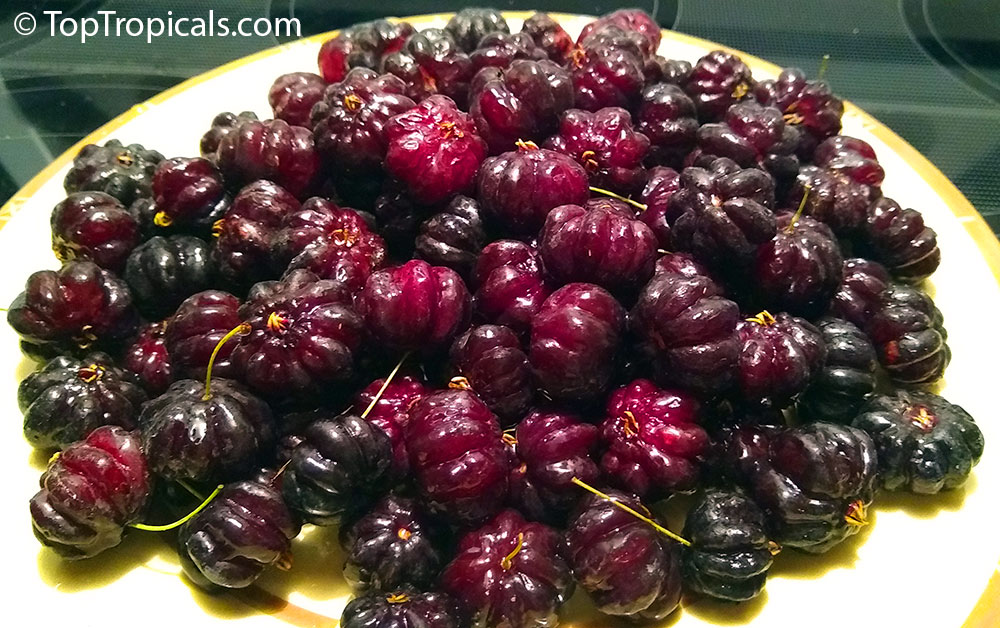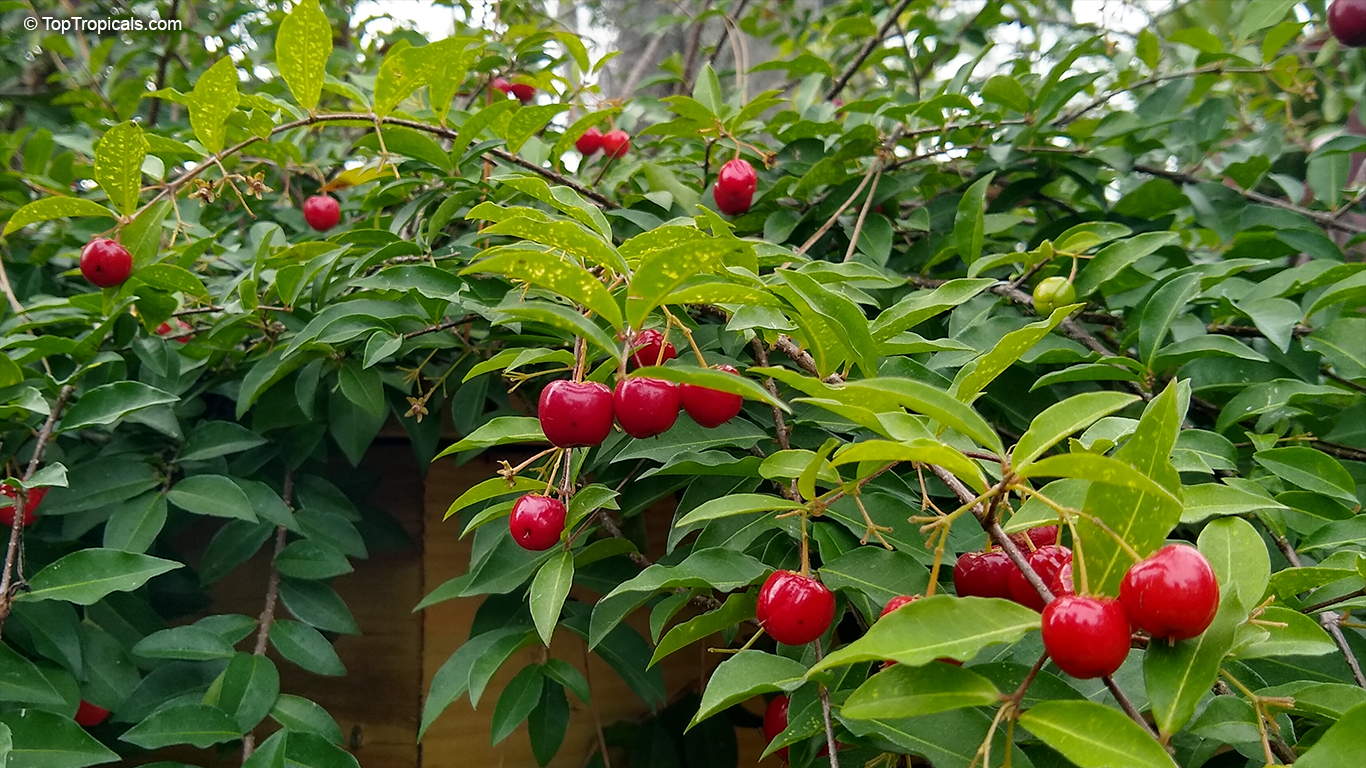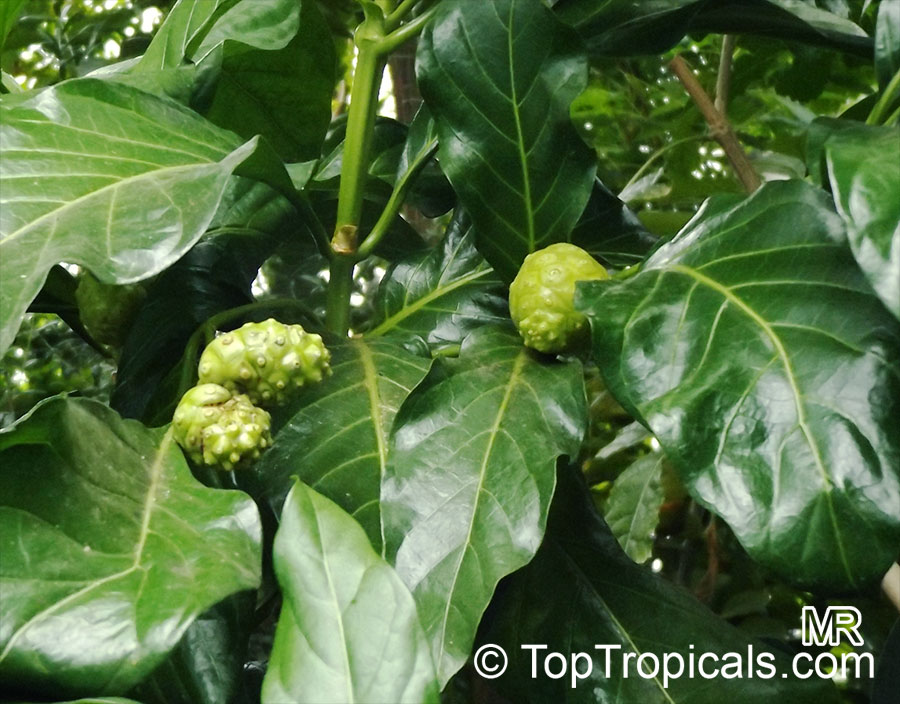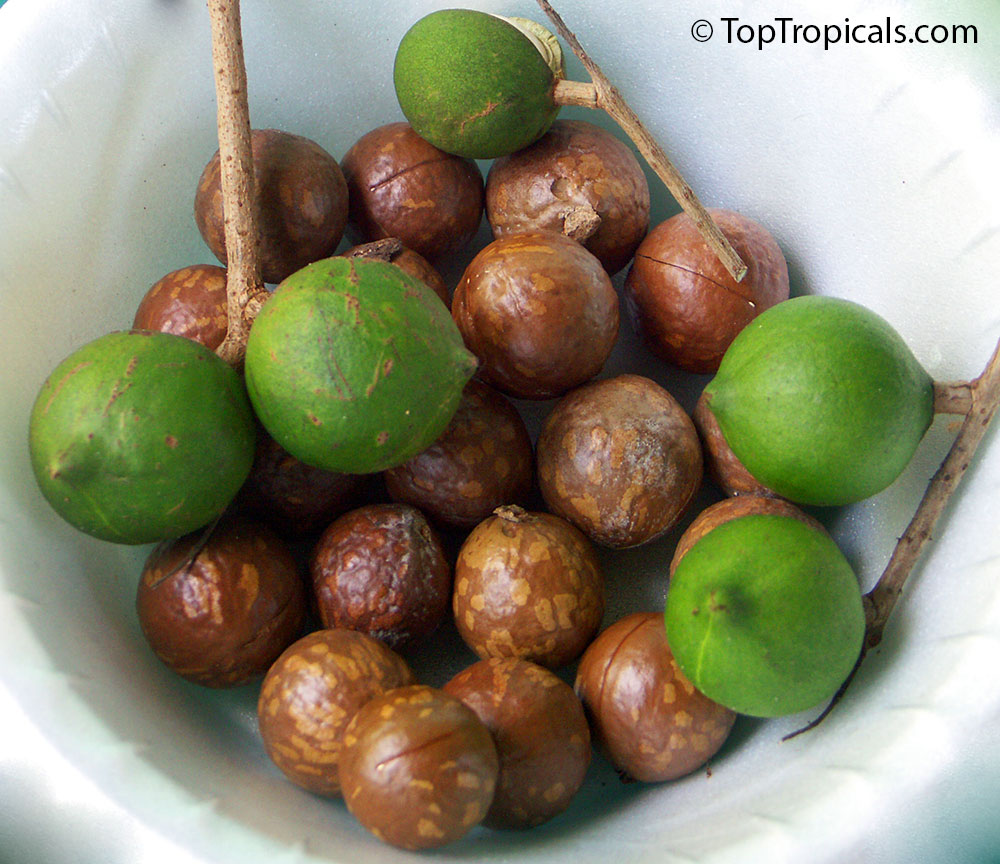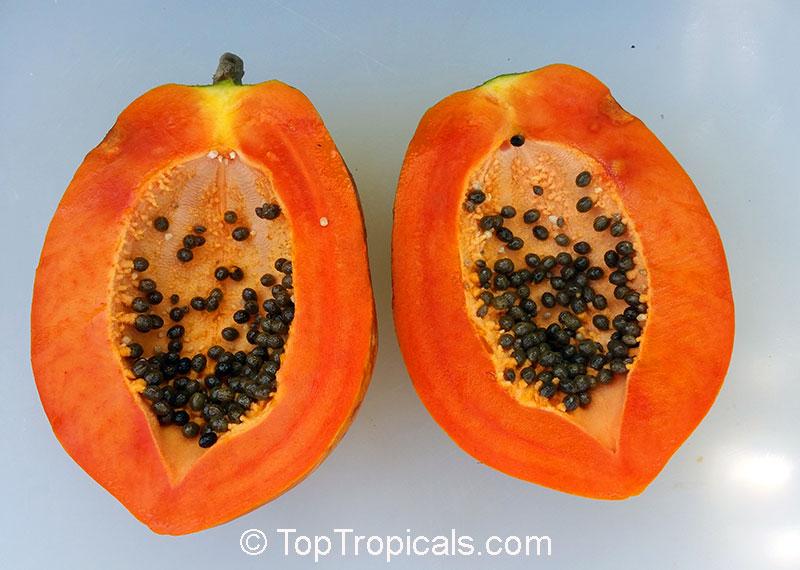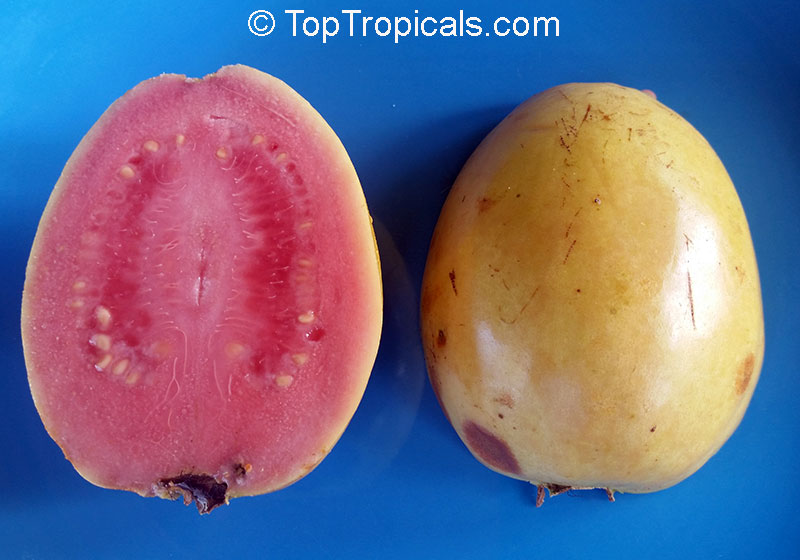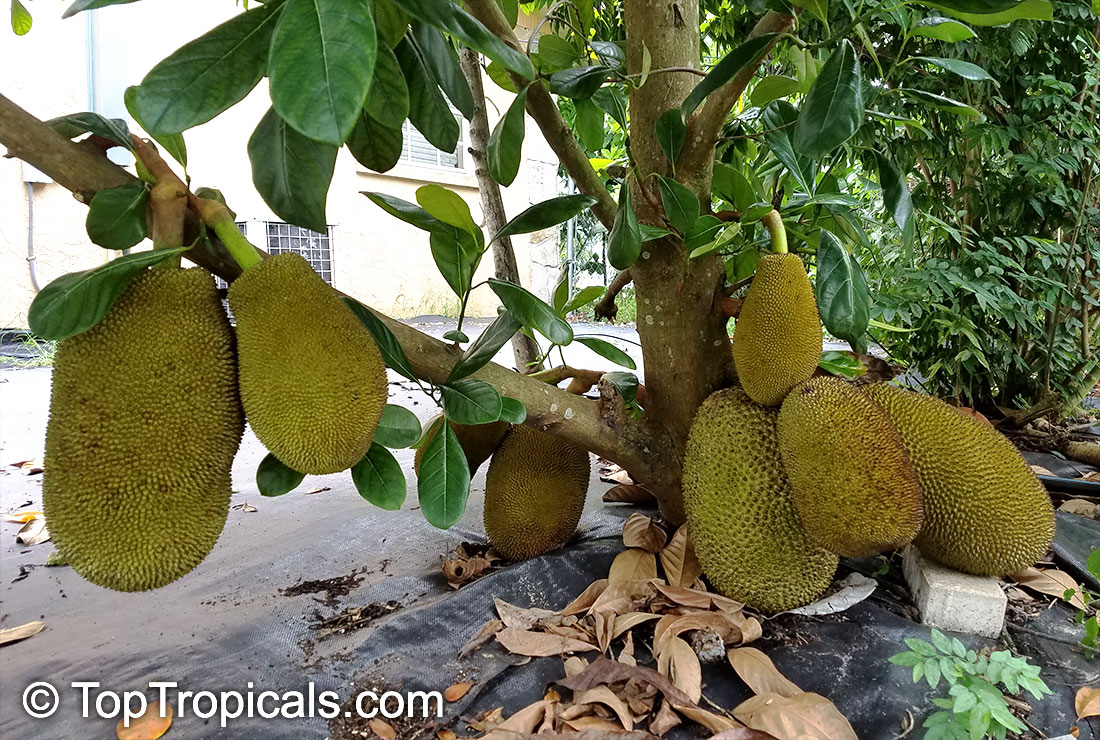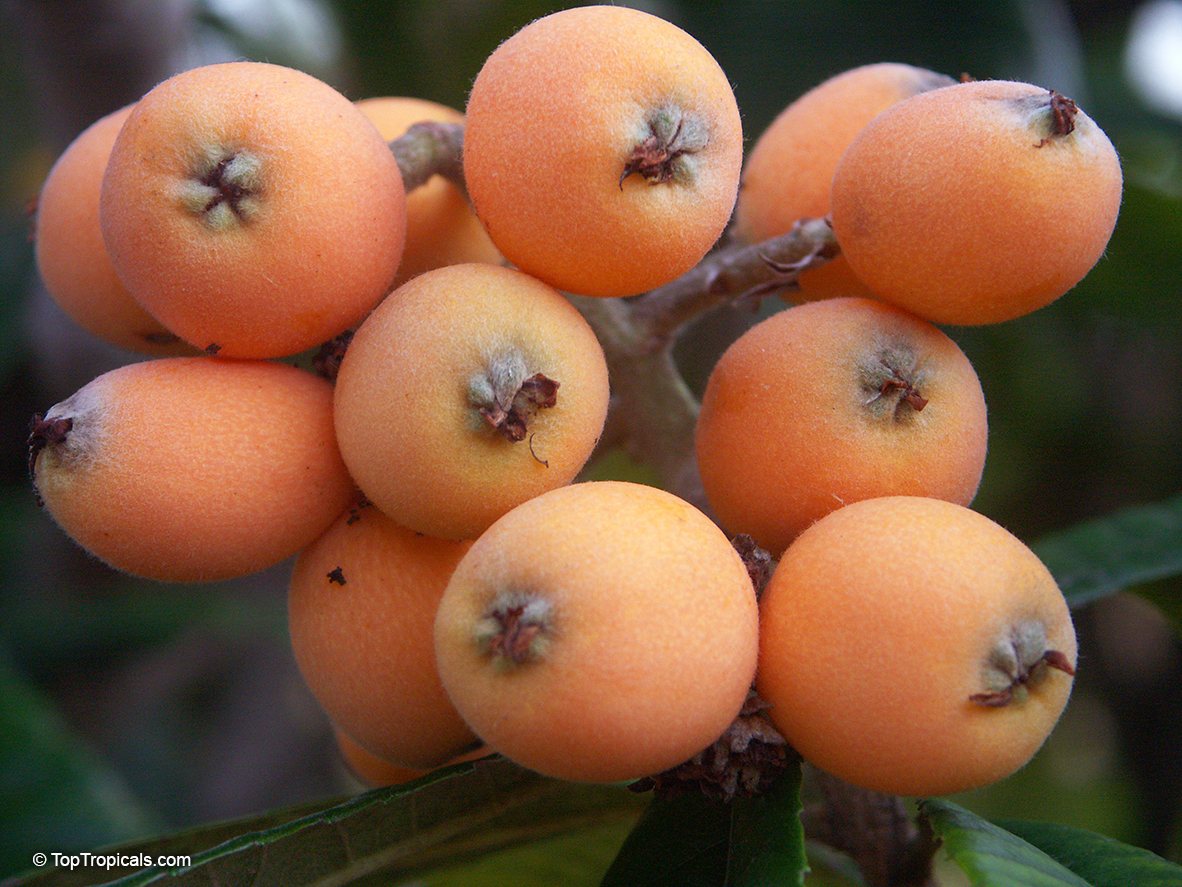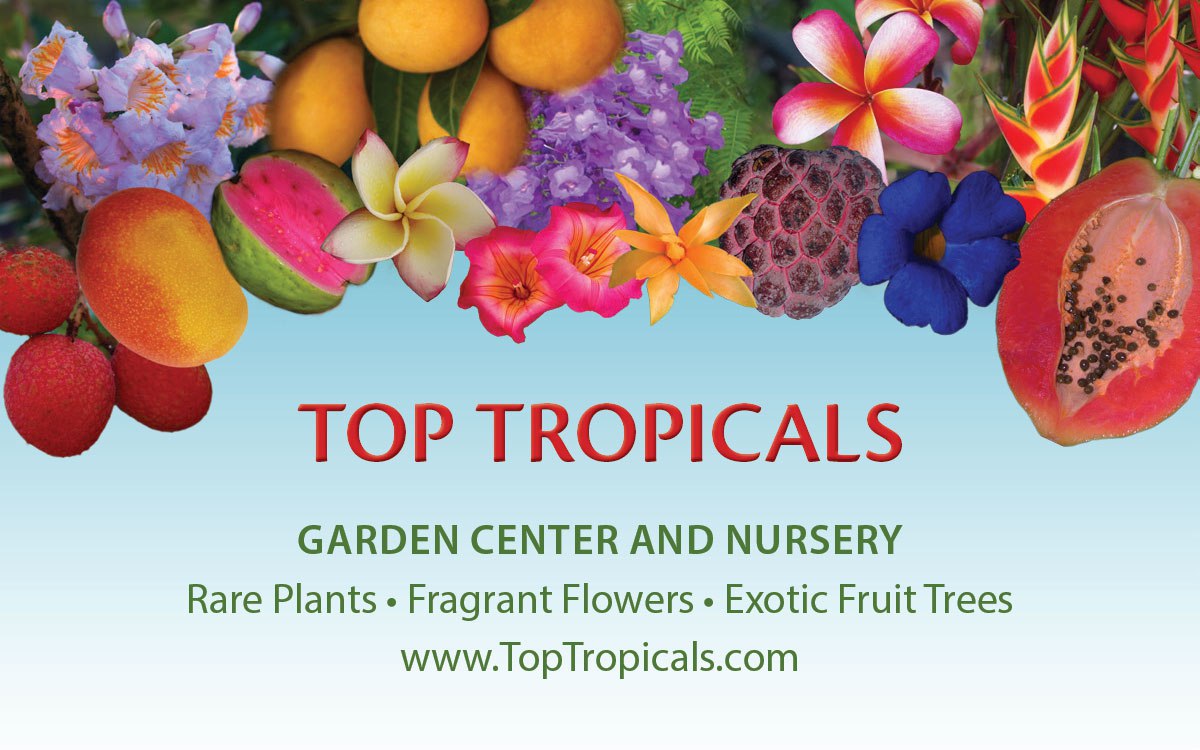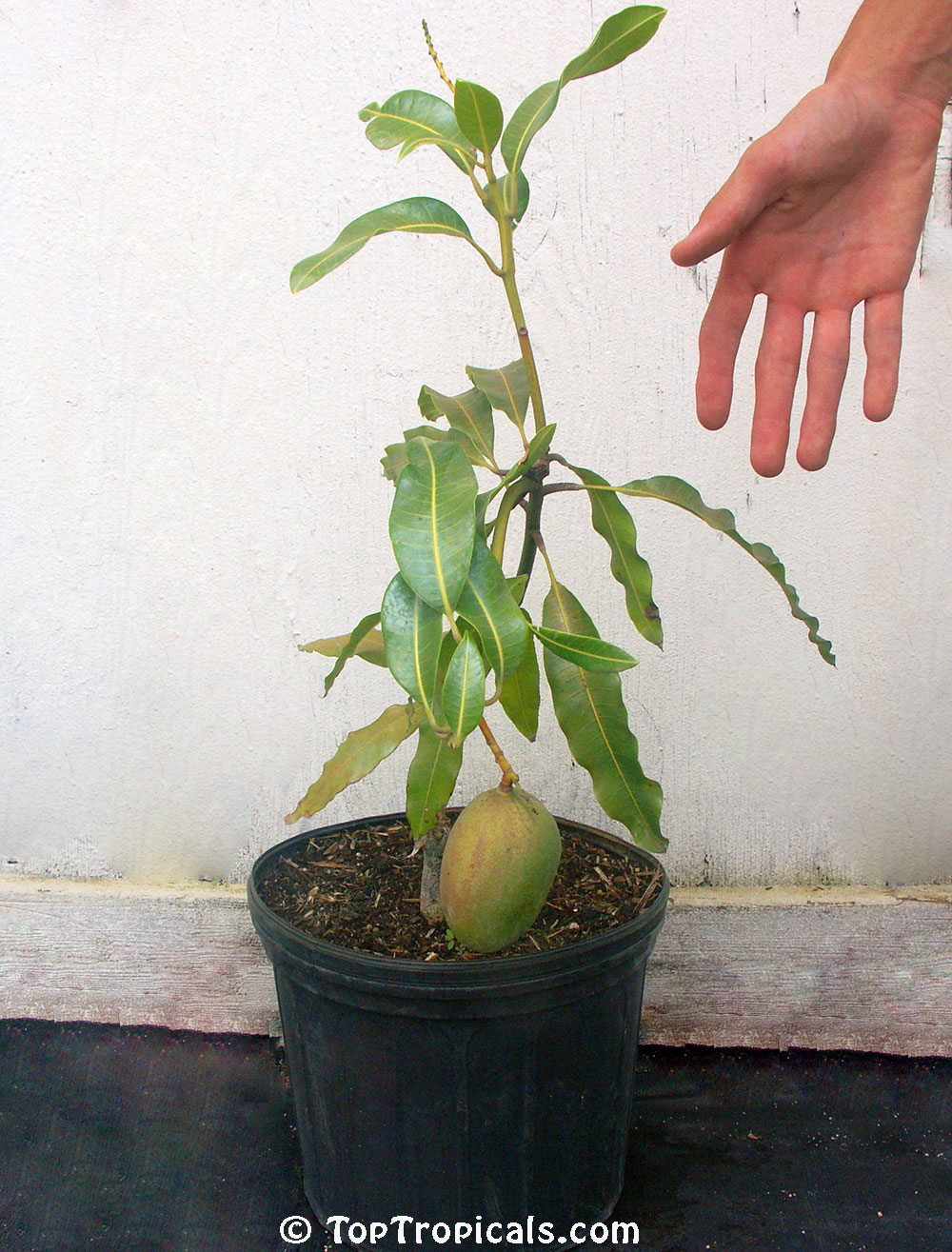Garden Blog - Top Tropicals
Date:
PeopleCats saving us from COVID-19!
Cat owners have higher immunity for COVID-19?
In our previous newsletter, we were talking about cats fighting the coronavirus and how to help them to recover.
The research made by Sabina Olex-Condor, a Polish doctor who works in a
clinic in Madrid, showed that due to cross-immunity (cats are a known reservoir
of coronaviruses) cat owners have milder sympthoms of COVID-19! Perhaps this
is due to the fact that in a cross-reaction antibodies are produced to the
virus, and owners of cats are more protected from COVID19... Read more)
Now that quarantine has been introduced almost universally because of
coronavirus, dog owners are also in a better position - they can officially go
outside for a short while. But the benefit of dogs (and other pets) is not only
that. Scientists from the Italian city of Catanzaro found in the course of
the study, that those who have a four-legged pet, have very mild symptoms of
the COVID-19. A similar effect was observed in those in contact with cattle...
To find an explanation for this phenomenon, the researchers compared viruses.
It turned out that the disease of bulls, cows and other cattle is similar to
Chinese coronavirus by 38.4%, and the virus of dogs by 36.9%. This means
that owners of animals already have some kind of immunity. So the owners of cats
and dogs, as a rule, tolerate coronavirus easier or completely asymptomatic.
Read more...
Stay safe and healthy with your PetPeople!
TopTropicals PeopleCat Club
Thank you everybody for supporting us in helping PeopleCat Community!
Make
your kind donation today and receive a surprise gift from us. Every little
bit helps! Thank you and God bless you and your pets!
Which dog would you take home: golden, black or chocolate?
Sunshine (golden), Draco(chocolate) and Lila (black) Labrador dogs
"Dogs come when they're called; cats take a message and get back to you later." - Mary Bly
🐈📸 Sunshine (golden), Draco(chocolate) and Lila (black) Labrador dogs at Top Tropicals Bfarm and PeopleCats.Garden.
#PeopleCats
🟢 Join 👉 TopTropicals
Date:
B-Farm in Sebring
Now open 6 days a week!
In the photo: Sunshine and Mango, our friendly Customer "Service Animals" will be happy to give you a tour of the farm, including Sunshine Boosters selection and Mango Collection!
Attention local shoppers! Note new business hours for our Sebring location:
Monday - Saturday
9 am - 3 pm
Large discounts for locals!
Come visit us in Sebring, the heart of Florida, easily accessible from any Florida destination. You won't want to miss out on our 10-acre tropical farm, boasting the largest selection of rare plants, flowering and fruiting trees, edibles, and perfume plants from around the world!
Take your time and browse through our extensive collection, and don't hesitate to ask our knowledgeable staff for advice or assistance. You'll love being able to handpick your own garden gems straight from the grower. Whether you're a seasoned gardener or just starting out, we have something for everyone. So come on down and see for yourself...
P.S. Our Garden Center in Ft Myers is open as usual, 7 days a week
Date:
Meet PeopleCats of TopTropicals. Cat of the day: Anders from the King's Palace
We receive many letters from customers who enjoy our Cat of the Day column, including those who want to share their cat stories with us! Today's guest in PeopleCat studio -
Cat Anders. Anders lives in Stockholm. He is a manager of a Garden
Center located in one of the King's properties - Palace Ulriksdal. He has so many beautiful flowers in
stock! Lots of orchids, camellias, and showy colorful annuals.
Anders' favorite spot is to sit by the cash register where he can closely
monitor every payment transaction. Sometimes he takes a walk around the
premises to take care of security issues and to stay on top of his inventory
control. During lunch time Anders visit Flower Cafe nearby, to make sure visitors'
dogs behave properly... Yes, dogs and cats are welcomed in!
TopTropicals PeopleCat Club and Zoo
Thank you for supporting us in helping PeopleCat Community!
Make
your kind donation today and receive a surprise gift from us! Every little
bit helps. Thank you and God bless you and your pets!
Cats rule, dogs drool - says Charlie to Draco But we are still friends!
Draco is a cat DogPurson. If it was a human he would be jumping all over them. Cats calm him down. When Charlie comes up to him in the yard, he lays down really low to make himself small and waits for her to come love on him.
Be nice to each other. Just be kind. It's the least you can do, but it makes a big difference. Good night.🌜
📸 😺 👇 Share your cats in comments!
🐾 More #PeopleCats in our Garden:
PeopleCats.Garden
🏵 TopTropicals
Your Angles are watching you
"...Angels live in clouds of luxury above,
Beyond the reach of shouts or any call.
They send their joy in cats and dogs with love,
In dogs it's swift, in cats it lingers all..." - Serge Plotov
"Ангелы проживают в своих облаках роскошных.
Дотуда не докричаться. Оттуда не дозвониться.
А радость они посылают людям в собаках и кошках.
- В собаках быстрей доходит. В кошках дольше хранится."
© Сергей Плотов
🐈🐈🐈
Share your pets in comments!
🔠 More #PeopleCats in our Garden:
PeopleCats.Garden
#Quotes
🔴 Join 👉 TopTropicals
Date:
Mango: Fruit of Love and Friendship
In the photo: Mango Princess reincarnated. Mango is a Lab dog that got pregnant and lost her home... But she found her new life at Top Tropicals PeopleCats community. And she brought us a basket of happy puppies!
According to Hindu folklore, there was once a Sun Princess who was cruelly burned to death by a wicked sorceress... However, from the ashes of the princess, a mango tree sprung up, and the Emperor was immediately enchanted by the beauty of its blooms. The fruit that followed was equally as captivating and when the ripe mangoes fell from the tree, the Sun Princess was reincarnated.
Starting that moment on, the mango became a symbol of love and affection in India, and offering someone a basket of mangoes was seen as a gesture of friendship.
Today, mangoes are widely regarded as the most consumed fruit in the world, with approximately half of all tropical fruits produced globally being mangoes.
Date:
Discover 10
best fruit trees to grow
in Florida and Southern landscapes
Q: We recently moved into our new home in Florida, and the property is a great size - 5 acres - but it currently has no trees, just a few palms. I'm looking to plant some productive fruit trees to start building our own Food Forest. What fruit trees would you recommend as a good starting point?
A: With five acres of space, you have a fantastic opportunity to create a fruitful garden that can provide for your family for many years to come. Below are our top recommendations for must-have, easy-to-grow fruit trees that thrive in Florida's climate, grow quickly, and start producing right away.
1. Mango Tree
Mango trees (Mangifera indica) are a must-have for any Florida garden, embodying the essence of the Sunshine State with their delicious and nutritious fruit packed with vitamins and fiber. These fast-growing, low-maintenance trees thrive with minimal water and are heat-tolerant. Grafted varieties produce high-quality, fiberless fruit in just 2-3 years, while dwarf "condo" mangoes are perfect for smaller spaces or containers. While young trees need frost protection, mature trees handle cold better. Grafted mangoes offer rich taste that you won't find in commercially grown, fibrous varieties, ensuring a sweet and vibrant harvest from your own garden.
2. Avocado Tree
The Avocado tree (Persea americana) is an essential addition to any tropical or subtropical garden. Known for its health benefits and superfood status, it's a favorite fruit that's not only productive but also a beautiful ornamental tree. Some avocado varieties are more cold-tolerant than mango trees, with the ability to survive temperatures below 25F. While many enjoy growing avocado from seed, only grafted trees guarantee quality fruit and immediate production, as seedlings can take 7-8 years to bear fruit. To successfully grow avocado, ensure good drainage by planting on a raised mound (4-6 inches) and keep the soil consistently moist. There are also compact varieties like Wurtz and Fuerte that thrive in containers or small spaces, making them ideal for patios and small gardens.
3. Tropical Cherries
Tropical cherries, such as Cherry of the Rio Grande (Eugenia aggregata), Grumichama (Eugenia brazilensis), Pitomba (Eugenia luschnathiana), and Black Surinam Cherry (Eugenia uniflora var. Lolita), are popular and easy-to-grow fruit trees that offer fast growth and excellent fruit production. These compact, versatile trees thrive in both the ground and containers, starting to produce fruit almost immediately. Eugenias are low-maintenance, requiring minimal water, thriving in various soil types, and being pest-free. They are heat-tolerant and can endure cool winters, surviving light frosts. Birds love the fruit, but don't worry - there will always be plenty for everyone.
4. Barbados Cherry Tree
Barbados Cherry (Malpighia glabra), also known as Acerola, is a tropical cherry renowned for having the highest vitamin C content of any fruit. This nutrient-packed fruit is perfect for jellies, jams, and freezing without losing its vitamin C. The Barbados Cherry is a fast-growing, dense shrub that fruits multiple times a year, providing abundant harvests for gardeners seeking quick results. It thrives in alkaline soil, tolerates drought, and is relatively cold-hardy, withstanding light freezes. Birds love the fruit, making it a great addition to wildlife-friendly gardens. The dwarf variety, Nana, with its small leaves and fruit, is perfect for containers, borders, or even bonsai, adding ornamental value to any space.
5. Noni Tree
The Noni Tree (Morinda citrifolia) is a top superfood plant that makes a fantastic addition to any Southern garden. Known for its numerous medicinal benefits, Noni fruit offers anti-inflammatory properties, relief from arthritis, and support for conditions like diabetes, metabolism, and weight loss. It's even believed to help fight cancer. Noni trees grow quickly and begin producing fruit within 2 years from seed. This tough, resilient plant thrives in poor soil, endures summer heat, and withstands drought conditions. Despite its tropical appearance, Noni is surprisingly cold-hardy, recovering well after leaf damage in cooler weather. In addition to its health benefits, the Noni tree has ornamental value, with large, waxy leaves and unique fruit, where the flower appears to grow directly on the fruit!
6. Macadamia Nut Tree
The Macadamia Nut Tree (Macadamia integrifolia) is a fantastic addition to any garden, allowing you to grow these delicious, high price tag, nutrient-rich nuts right at home. These trees are cold-hardy, grow quickly, and thrive in all Florida soil types. Once established, they are productive and can tolerate both flooding and drought. Older trees can survive colder winters, while young trees need protection from temperatures below 25-26F. Macadamia trees like plenty of water and a special fertilizer program, including liquid fertilizers and microelements, to ensure healthy root development and optimal production. Aside from being rich in healthy fats, vitamins, and minerals, macadamia nuts offer numerous health benefits, such as improved digestion, heart health, weight management, and blood sugar control. They are also packed with tocotrienols - antioxidants which may protect against cancer and brain diseases.
7. Papaya Tree
Papaya trees (Carica papaya) are resilient, easy to grow, and produce fruit year-round. Rich in papain, a digestive enzyme, papayas are a superfood that promotes gut health. These fast-growing trees often begin producing fruit within the same year they're planted, providing quick rewards for gardeners. Many varieties, especially dwarf papayas, are space-efficient, reaching only 6-8 feet tall while still yielding large crops, making them perfect for small gardens. Surprisingly hardy for a tropical plant, papayas can withstand light freezes and strong winds (tested in hurricanes!). While they are self-fertile, planting 2-3 different cultivars improves pollination and increases yields. "Solo" cultivars, with their smaller, round or oval fruits, are sweet and less susceptible to fruit flies.
8. Guava Tree
Guava trees are beloved for their flavorful fruit, commonly used in juices, drinks, and desserts. Popular varieties include Tropical Guava (Psidium guajava), Cattley Guava (Psidium littorale), Cas Guava (Psidium friedrichsthalianum), and Pineapple Guava (Feijoa sellowiana). Despite their tropical nature, guavas are surprisingly cold-hardy, suitable for cooler climates and occasional frost. These trees thrive in moist conditions and can tolerate some flooding, while their compact growth makes them easy to maintain at any height or shape. Guavas are fast-fruiting, often producing fruit within a year of planting, and even some varieties in 1 gal containers. The dwarf Nana variety is perfect for container culture, producing full-sized fruit in a compact form. Guava trees are mostly pest-resistant, though mealybugs may require occasional treatment with neem oil in humid, rainy areas. Planting multiple guava trees ensures a continuous supply of fresh, juicy fruit and delicious guava juice for everyone to enjoy.
9. Jackfruit Tree
The Jackfruit tree (Artocarpus heterophyllus) is a striking, fast-growing tree known for producing the largest fruit grown on a tree, making it a showstopper in any garden. Nutrient-packed and often used as a meat substitute in South Asian cuisine, Jackfruit is also delicious in curries, chutneys, and as dehydrated chips. These trees grow quickly, have large waxy leaves, and can be maintained at a compact height of 7-8 feet, making them ideal for smaller spaces and easier cold protection. Despite being a tropical species, Jackfruit trees are relatively cold-tolerant and can survive light frost (although on the account of production volume), with established trees being more hardy than seedlings. Jackfruit trees begin producing fruit within 3-4 years from seed, and varieties come true to seed, eliminating the need for grafting, though it can be done for specific varieties.
10. Loquat Tree
The Loquat tree (Eriobotrya japonica) is a fast-growing, drought-tolerant, and highly cold-hardy tropical fruit tree that thrives in Florida gardens. Loquats are heavy producers, with juicy, aromatic fruit that ripens from early spring to early summer, offering a delicious apricot-like flavor. This compact tree is perfect for small gardens, beginners, and those with limited space. Loquats are undemanding, thriving in any soil and withstanding summer heat, winter cold, heavy rains, and occasional flooding. Nutrient-rich, they are high in sugar, acids, vitamins B and C, minerals, and pectin. Loquats are versatile, enjoyed fresh or used in fruit salads, jams, jellies, chutneys, pies, sauces, and even wine-making, and they are often used as a natural sweetener.
Index of TopTropicals Telegram Channel
Follow these tags to find your interests:
#Butterfly_Plants - Butterfly attracting plants.
#Container_Garden - Plants suitable for container garden and indoor culture.
#Fertilizers - All the truth about fertilizers, plant food supplements, and our recommendations for different types of plants.
#Food_Forest - Fruit trees, Spice plants, and Edibles.
Including: #Avocado, #Mango, #Papaya, #Guava, #Jackfruit, #Loquat
📖 #Fun_Facts - interesting plant facts and legends.
🌳 #Hedges_with_benefits - Practical approach to your landscape and how to properly select showy and useful plants for your yard.
♍️ #Horoscope - Plant Horoscopes and Cat Horoscopes. Did you know that cats also have their Zodiac signs?
🛠 #How_to - Q&A about growing plants, tropical garden lifehacks.
👀 #Nature_Wonders - Unusual, amusing, outrageous, bizarre plants...
🐈 #PeopleCats - our Favorite PeopleCats (and some PeopleDogs, too).
🌸 #Perfume_Plants - Fragrant plants and perfume trees.
✍️ #Quotes - Interesting quotes.
#Recipes - Exotic recipes for tropical fruit and edibles.
💊 #Remedies - Medicinal plants.
☁️ #Shade_Garden - Plants suitable for low light conditions.
🌼 #Trees - Spectacular flowering tropical trees.
🏆 #Win - Contests, Sweepstakes, and other specials.
Join and share with friends👇🏵
TopTropicals
Date:
URBAN TROPICAL GARDENING:
10 secrets of successful Container Mango growing on a
balcony.
Q: I live in Miami in apartment on a second floor, and I have a balcony with SE exposure. I wonder if I can grow a mango tree in a pot? Will it fruit for me? I recently moved to South Florida and I don't know much about tropical plants; but I tasted real fiberless mangos from someone's garden - it was so delicious and different from those in the grocery store. I wonder if I can have a fruiting tree on my balcony? And if yes, how do I plant and take care of it?
A:
Yes, you can! Here is what you need to do:
1) Temperature. You are lucky to live in Tropics,
keep it on a balcony year round.
2) Light. Position the pot in a spot with the most
sun exposure. Mango trees can take filtered light too, but
the less sun, the less fruit you will get.
3) Soil and Container. Use only
well drained potting mix. Step up the purchased
plant into next size container (3 gal into 7 gal, 7 gal
into 15 gal). When transplanting, make sure to keep growth
point (where roots meet the trunk) just at the top of the
soil. Covering base of the trunk with soil may kill the
plant.
4) Water. Water daily during hot season, but only
if top of soil gets dry. If it still moist, skip that day.
Mangoes (unlike
Avocados!) prefer to stay on a dry side.
5) Fertilizer. Use
balanced fertilizer once a month, 1 tsp per 1 gal of
soil. Do not fertilize during fruiting - this may cause
fruit cracks.
6) Microelements. Apply
SUNSHINE-Superfood once a month. This will help your
mango healthy, vigorous, and resistant to diseases. Use SUNSHINE-Honey to make your
fruit sweeter.
7) Insect control. Watch for scales and mealybugs,
clean with solution of soapy water + vegetable oil (may
need to repeat 2-3 times with 10 days interval), or with
systemic insecticide like imidacloprid only as needed (if
non-harsh treatment didn't help). Most Flea shampoo for
dogs contain that chemical, you may try that shampoo
solution.
8) Trimming. Once potted, do not remove leaves
that are discolored or have spots until new growth
appears. Dark dots on mango leaves, especially in humid
climate like Florida, may be signs of fungus. Treat with
fungicide according to label, and remove only badly
damaged leaves. Trim crown as needed after flowering and
fruiting (by Fall). Train into a small tree, and you may
remove some lower branches eventually.
9) Flower and fruit. Mangoes are winter bloomers
with bunches of tiny flowers coming in thousands. Many of
them set fruit (if pollinating insects present). Keep in
mind that young trees can only bare a few fruit. Normally
a tree will drop excessive fruit and keep only a few that
it can manage. To save the young tree some energy, remove
fruit if too many and leave only 2-3 for the first year.
It will pay you next year with more abundant crop.
10) Variety. Last but not least: Choose the right
variety for container culture! Pick from "condo" dwarf
varieties such as Icecream, Nam Doc Mai, Carrie, Cogshall, Julie, Fairchild, Pickering, Graham, Mallika, and a few others -
check out Mango Chart pdf
and full list of our Mango varieties.
